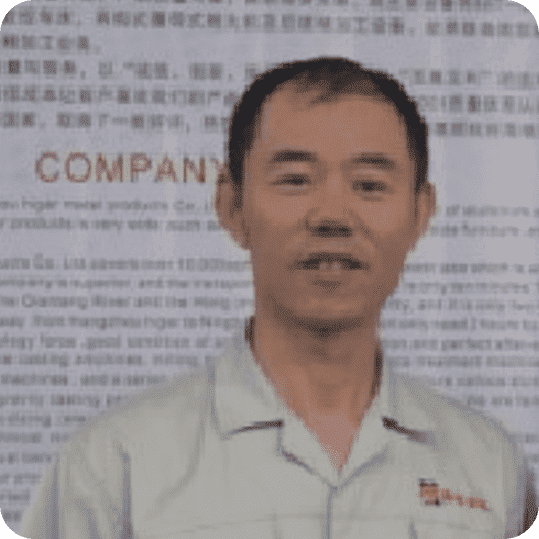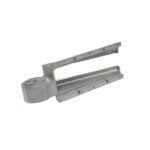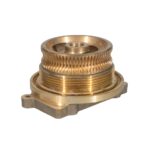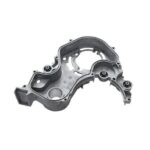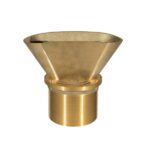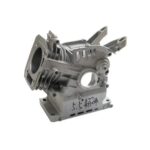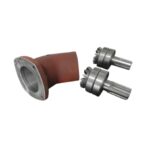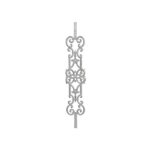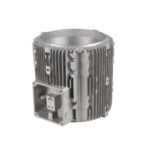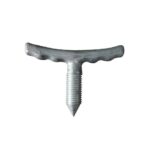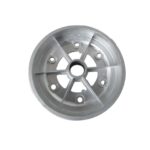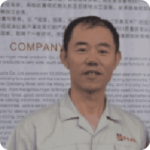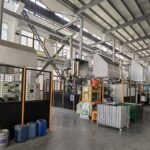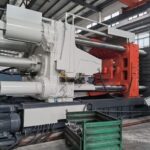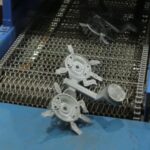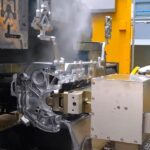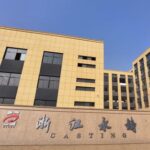I’ve watched truck drivers, freight brokers, and bankers all take a slice of value from a casting before it leaves China. Pick the wrong trade term and your “cheap” housing can gain more hidden cost than machining chips.
Below is the playbook I hand new buyers before they lock an RFQ—seasoned with two decades of shipping thousands of tons of alloy through typhoons, factory shutdowns, and midnight customs checks.
Quick Refresher: What EX-Works and FOB Really Mean
Under EX-Works (EXW) I wheel finished castings just outside my factory gate, hand you the paperwork, and wave goodbye—every truck fee, export stamp, and sea‐freight bump is on you.
Under FOB I pay the inland haul, clear export customs, load the container, and the risk baton passes only when the box is safely over the ship’s rail. One sentence in a contract, two totally different journeys for cost and liability.
Cost Breakdown: Who Pays for What?
The spreadsheet below shows which pocket takes each charge and how it translates into dollars per kilogram for a 4 kg die-cast housing moving from Shenzhen to Los Angeles in early-2025 market rates.
| Cost Element | EXW – Buyer Pays | FOB – Buyer Pays | $/kg Impact* |
|---|---|---|---|
| China inland truck & tolls | Yes | No | 0.06 – 0.12 |
| Export customs docs & licenses | Yes | No | 0.01 |
| Port handling & container loading (THC) | Yes | No | 0.03 |
| Ocean freight | Yes | Yes | 0.40 – 0.90 |
| Destination THC & drayage | Yes | Yes | 0.04 – 0.08 |
*Average Q1-2025 contract rates.
EXW looks cheap until inland China fees pile on; FOB looks fatter up front, yet wipes three line items from your ledger.
Risk Transfer Timeline
A casting’s “ownership relay” passes five batons, and each drop can void insurance.
- Factory Loading Dock – EXW risk starts here; FOB still on me.
- City Toll Gate – EXW buyer risk; FOB my driver, my headache.
- Port Gate & Customs X-ray – EXW buyer risk; FOB still supplier.
- Vessel Rail (On-Board Time Stamp) – Risk flips to buyer under FOB.
- US Crane Discharge – Both terms already your risk; time to call your broker.
Miss a hand-off and you’ll argue claims while cargo rusts in the rain.
Cash-Flow & Inventory Control
Under EXW most Chinese suppliers, myself included, demand payment once the truck rolls—inventory sits on your books for up to six weeks at sea.
FOB lets you pay on the on-board bill of lading date; many banks treat that milestone kindly in L/C structures, freeing working capital for bigger POs or faster mold changes.
When EX-Works Makes Sense for Aluminum Castings
EXW turns into a cost cutter only if you already run a well-oiled freight machine.
- You consolidate castings from multiple factories into one full-container load.
- Your forwarder locks annual ocean contracts with predictable bunker surcharges.
- You run weekly shipments, so paying trucks directly beats supplier mark-ups.
I have customers who shave two to three cents per kilo this way—but they also keep a bilingual logistics team on payroll.
When FOB Wins the Spreadsheet War
FOB is my default suggestion for first-time importers or modest volumes.
- New buyers avoid hunting for export licenses, CIQ inspections, or driver WeChat groups.
- LCL lots (< 5 m³) face trucking fees that dwarf the FOB premium.
- High-liability parts—EV battery housings, pressure vessels—stay under my export QC microscope until they’re lashed on deck.
Your inbox stays lighter, and my factory’s export department earns its keep.
Hidden Costs & Paper Cuts I’ve Seen Clients Overlook
- An EXW buyer forgot exporters need a metal-product license—cargo sat ten days, ¥8 000 in demurrage.
- A FOB shipper rerouted during port congestion; carrier slapped a US$350 “emergency change” fee.
- Insurance gap: buyer policy started at the port gate but truck crashed en route—$42 000 lesson.
These stings rarely show up in a line-item quote but bite margins hard.
2025 Rate Outlook & Fuel-Surcharge Trends
Low-sulfur fuel rules push bunker costs up; carbon taxes lurk on EU trade lanes. Inland trucking in China adds a green-diesel fee from July 2025. Expect these to widen the EXW vs. FOB break-even by 0.02–0.05 $/kg—further favoring FOB unless you’ve locked carrier fuel clauses.
Checklist: Which Incoterm Fits Your Program?
- Annual volume & container utilization rate
- In-house logistics expertise vs. 3PL dependency
- Supplier’s export compliance track record
- Payment term synergy with risk transfer (TT, L/C, open account)
Tick three or more boxes toward FOB and you’ll likely sleep better.
Case Snapshot — 12 % Landed-Cost Drop by Switching to FOB
A mid-size U.S. pump OEM ran EXW on five Chinese foundries. We bundled their SKUs, shifted to FOB Shenzhen, let my team handle trucking and customs, and cut inland fees plus port delays. Result: 12 % landed-cost reduction, two-day faster clearance, zero rolled containers that quarter. Their CFO now quotes that project in every board slide.
Incoterms aren’t fine print—they’re profit levers. EXW rewards seasoned freight ninjas; FOB lets most buyers focus on parts, not pallets. Still unsure? Email your part weight, city, and forecast to yongzhucasting@gmail.com. I’ll build a personalized EXW-versus-FOB cost model—faster than a die reaches casting temperature.
Quick FAQ
Can I mix EXW and FOB in one contract?
Yes—just tag each line item with its term; banks handle split Incoterms daily.
Does FOB affect my supplier’s VAT rebate timing?
No—the rebate hinges on the export declaration, which still bears the supplier’s tax code.
Must a FOB buyer nominate a Chinese forwarder?
Recommended but not mandatory; if you skip it, your supplier will pick one and pass through the charges.
Searching for High-Quality for Cast Aluminum Parts Supplier?
You’ve come to the right place! Yongzhu Casting is a certified die casting manufacturer with over 20 years of expertise in the industry.
We have successfully completed numerous die casting projects for Aluminum casting parts, particularly in your industry.

Zhejiang Yongzhu Casting Technology Co., Ltd.
Location: Zhejiang, China
Company type: Manufacturers, Producers, Wholesalers
Year Founded: 2004
Main Products: Aluminium die casting, Mold Making, Die Casting, Sand Casting, Gravity Casting
Leading Chinese producer Yongzhu Casting is formerly known as Hangzhou Higer Metal Products Co., Ltd., was established in 2004.
With 20 years of experience in the industry, we are a specialized manufacturer in Aluminum casting and Machining.
Our products are widely used in various applications such as Automotive, Energy, Lighting, Medical, Home Furnishings, Machinery & Equipment etc. Below are our advantages:
Design Review & DFM Support
Our professionals will evaluate your designs and provide suggestions for cost savings. Additionally, we offer Design for Manufacturing (DFM) assistance and conduct mold flow analyses to facilitate efficient production.
State-of-the-Art Manufacturing Equipment
Our facility is equipped with advanced hot-chamber and cold-chamber die casting machinery for aluminum and zinc production.
We also utilize high-precision CNC machines in a temperature-controlled workshop, featuring 3-Axis, 4-Axis and 5-Axis setups to manage any project you have.
Rigorous Quality Control Measures
Our dedicated quality control team ensures that all parts meet the highest standards of quality and consistency. We employ high-accuracy measurement instruments, including CMM, spectrometers, and X-ray detectors.
Comprehensive Surface Treatment Options
We provide a variety of surface finishing techniques for your precision die casting components. Our in-house services include cleaning, polishing, anodizing, shot blasting, and painting.
Flexible Project Acceptance
While larger manufacturers often shy away from low-volume projects, and smaller ones may struggle with quality, Yongzhu Casting stands apart. We prioritize customer satisfaction and willingly accept high-mix, low-volume projects like yours.

